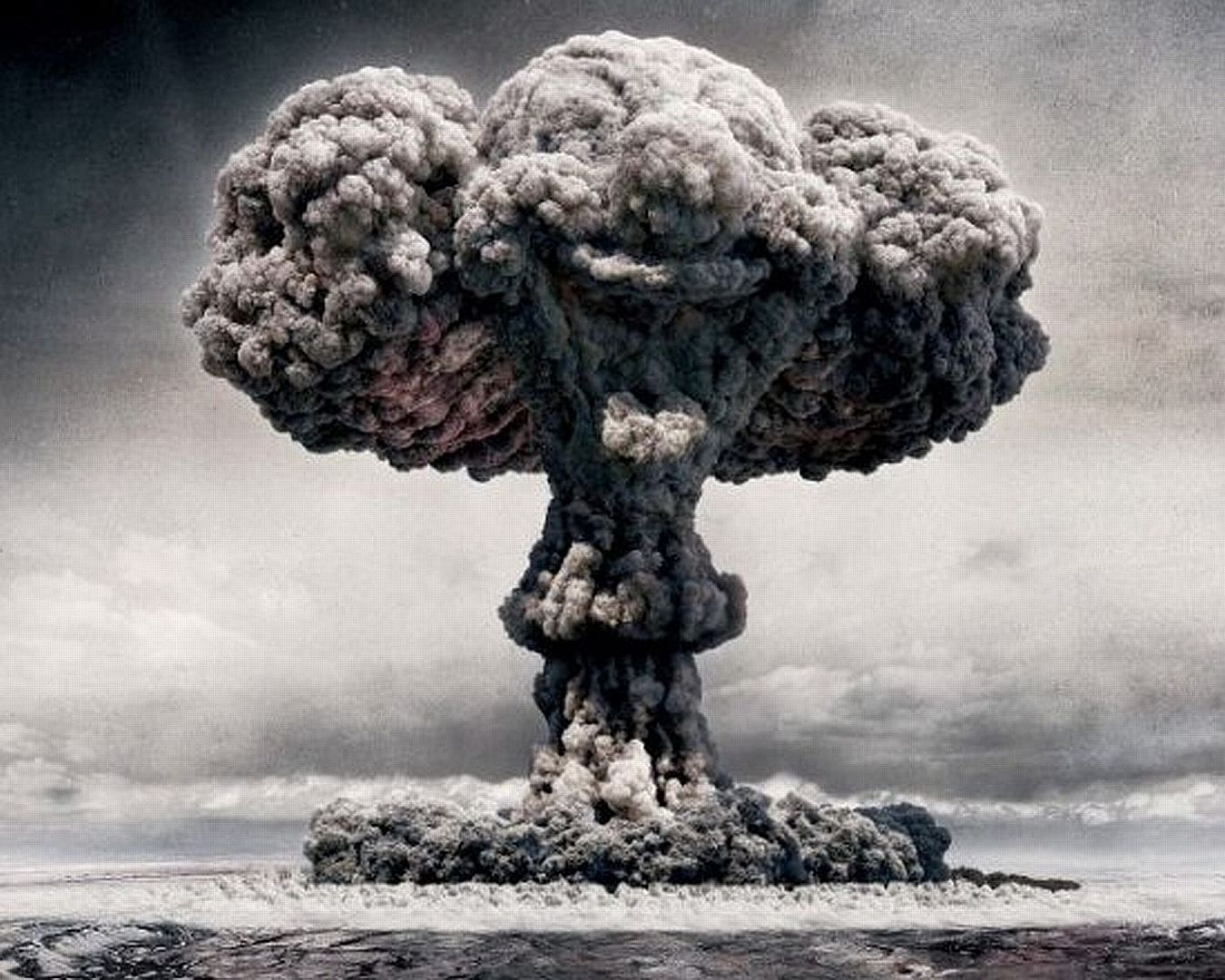16 July, 1945: First successful atomic bomb test
At 5:29:45 a.m. on this day in 1945, the Manhattan Project comes to an explosive end as the first atom bomb is successfully tested in Alamogordo, New Mexico.
Plans for the creation of a uranium bomb by the Allies were established as early as 1939, when Italian emigre physicist Enrico Fermi met with U.S. Navy department officials at Columbia University to discuss the use of fissionable materials for military purposes. That same year, Albert Einstein wrote to President Franklin Roosevelt supporting the theory that an uncontrolled nuclear chain reaction had great potential as a basis for a weapon of mass destruction. In February 1940, the federal government granted a total of $6,000 for research – the costs of which ballooned to $2 million. But in early 1942, with the United States now at war with the Axis powers, and fear mounting that Germany was working on its own uranium bomb, the War Department took a more active interest, and limits on resources for the project were removed.
Brigadier-General Leslie R. Groves, himself an engineer, was now in complete charge of a project to assemble the greatest minds in science and discover how to harness the power of the atom as a means of bringing the war to a decisive end. The Manhattan Project (so-called because of where the research began) would wind its way through many locations during the early period of theoretical exploration, most importantly, at the University of California, where Robert J. Oppenheimer lectured and where most of the theoretical work on the bomb was done, and at Columbia University, where Enrico Fermi and his team successfully initiated the first self sustaining nuclear chain reaction.
But the Project took final form in the desert of New Mexico, where, in 1943, Oppenheimer began directing Project Y at a laboratory at Los Alamos, along with such minds as Hans Bethe, Edward Teller, and Fermi. Here, theory and practice came together, as the problems of achieving critical mass – a nuclear explosion – and the construction of a deliverable bomb were worked out.
Finally, on the morning of 16 July, in the New Mexico desert 120 miles south of Santa Fe, the first atomic bomb was detonated. The scientists and a few dignitaries had removed themselves 10,000 yards away to observe as the first mushroom cloud of searing light stretched 40,000 feet into the air and generated the destructive power of 15,000 to 20,000 tonnes of TNT. The tower on which the bomb sat when detonated was vaporised.
The question now became: on whom was the bomb to be dropped? Germany was the original target, but the Germans had already surrendered. The only belligerent remaining was Japan. On 6 and 9 August, on the order of President Truman, the U.S. dropped atomic bombs on the Japanese cities of Hiroshima and Nagasaki respectively. On 15 August Japan surrendered to the Allies, ending World War II.





















































































